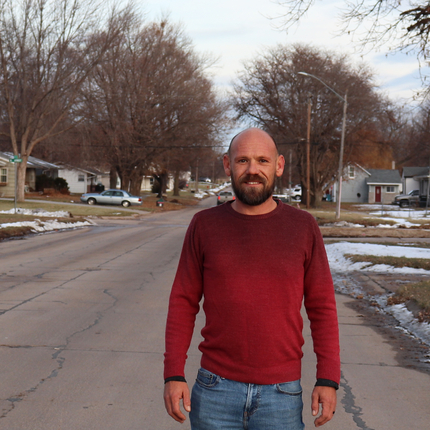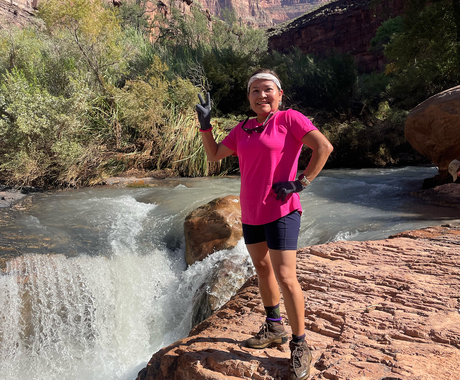Countdown time! With less than one week remaining in 2020, a recap is in order. While this year was more than ordinary, we are keeping at least one end-of-year tradition alive.
Starting today through the end of the year, we'll review the five best Center stories of the year, chosen by the most views on our website.
Number five features a piece authored by Trenton Buhr. He interviews Mike Tabbert who settled in to Antelope County, Nebraska, realizing that obtaining a broadband connection isn't that easy everywhere. He has expressed his voice to lawmakers from the county level to Washington, D.C. and back again. We salute and support his efforts. The blog was posted in January.
Civic engagement can be an enriching activity that helps everyone around us. You may have experienced this through calling your senator or testifying before a committee. You may also know that advocating for your beliefs can be difficult, even scary.
Mike Tabbert has mastered the art of advocacy; championing causes that matter to him.
After growing up in Orchard, Nebraska, Mike moved around. Most recently, he lived in the Houston, Texas, metropolitan area. Last year, Mike and his husband, Brian, moved back to Nebraska, and settled in rural Antelope County.
They found an old farmhouse, fixed it up, and started a life in the new place. By and large, they are living the life they expected and wanted. Mike’s family lives nearby, they avidly support all of the surrounding communities, and for the last year, Mike has worked on economic development in Antelope County.
Needless to say, they’re invested in their home.
After moving back to Nebraska, Brian started working from home, which made having a consistent, strong internet connection vital. For their family, internet access means a lot.
“It’s important for education,” Mike said. “When I was a kid, you picked up an encyclopedia to find something out—now you get on the internet.”
But, finding a way to obtain that service proved to be a challenge.
A short time into their efforts to get internet, Mike and Brian discovered that gaining access would take more than calling the local provider. To their surprise, no local companies claimed to service their home. One company, however, was willing to extend their line, but the cost would be steep.
So, Mike took to the phones. First, he called his representative in Lincoln, then the state’s Washington, D.C., envoys.
Along the way, he learned about rural broadband policy. Topics, such as dark fiber and public utility, suddenly became important. To muddy the waters more, Mike learned different government entities, such as the Federal Communications Commission and U.S. Department of Agriculture, have a stake in internet access.
“I Googled rural broadband and started talking to everyone who came up, to anyone who would listen,” Mike said.
Eventually, the Federal Communications Commission determined what company was required to service Mike’s home. The cost of installing a fiber line was still steep, higher than most people can afford. To tide themselves over, they used a fixed microwave wireless system that got a signal from the nearby town of Clearwater.
Although Mike had made progress on their own connection, rural internet access was a conversation around many kitchen tables.
In his attempt to solve this problem, Mike found the Center for Rural Affairs.
Soon, Mike was helping us gather stories from people about their rural broadband experience. He continues to contact his representatives and use social media to build momentum. Like most of us, Mike cares about many issues and uses his voice to show what matters to him.
“People ask me, ‘If I call my senator, what do I say?’ Tell them why this is important to you,” Mike said.
Making a difference begins by speaking up. As Mike will tell you, there are a lot of people who are worried about the same things.
“Whatever you’re passionate about, share it,” he said. “If one person reads it, maybe they will take a little action, too.”





